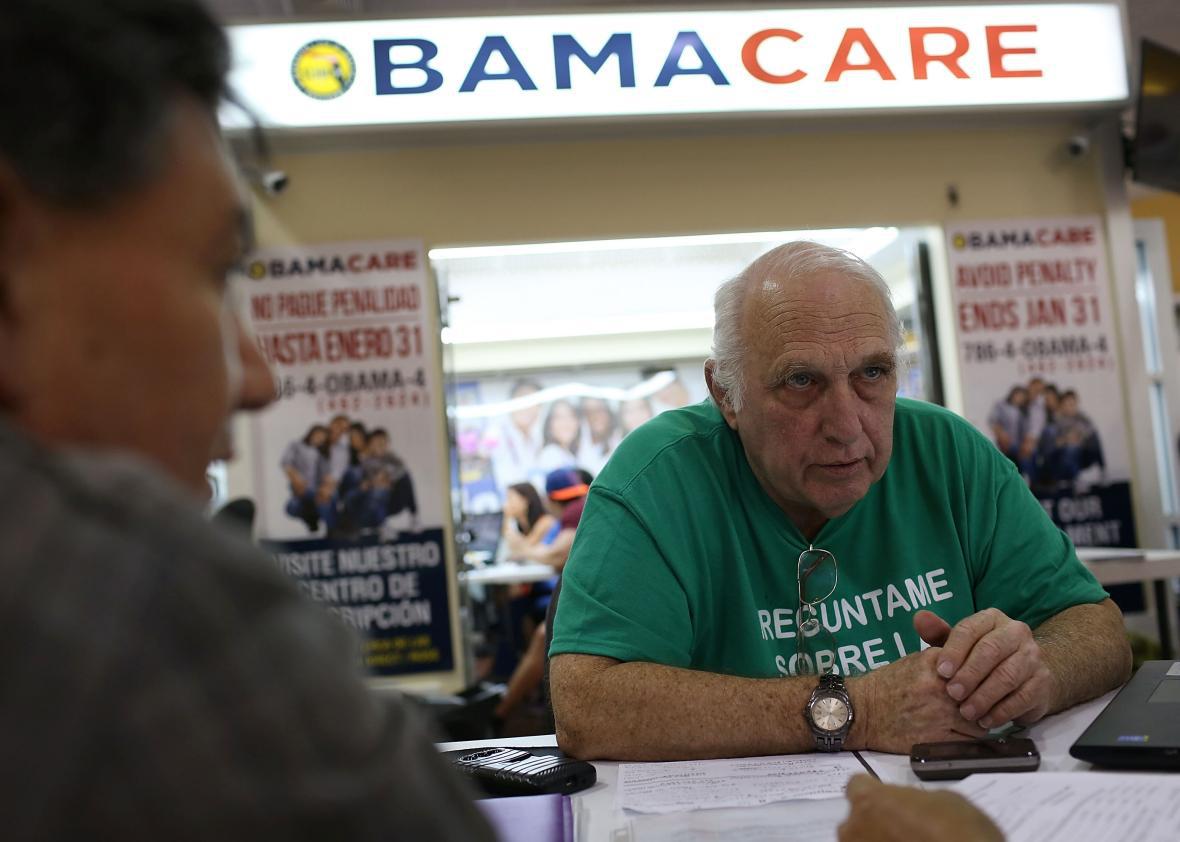The “Leave” campaign’s claim that the United Kingdom could use the 350 million pounds a week it currently pays in European Union dues for social welfare programs, including the U.K.’s popular but somewhat beleaguered National Health Service—a flat-out lie, as Slate’s Jordan Weissmann has pointed out—was one of the motivating factors behind last week’s vote for Brexit.*
Could health care spending concerns spark enough voter anger here in the United States to disrupt the election? A few weeks ago Politico warned of “Obamacare’s November surprise”: Many consumers enrolling in the health care marketplace on Nov. 1, just one week before the election, can expect increased rates.
Given the current disparity in the polls, it’s unlikely that alone could change the outcome of the election. But it is quite possible it will cause a bit of turmoil in the last week of the campaign. It’s beginning to look likely than many shoppers aren’t going to like what they find.
A report from the Kaiser Family Foundation released earlier this month estimated that the average weighted premium increase for the benchmark second lowest cost silver plan will come in at 10 percent. Last year? It was 5 percent.
True, tax credits help defray costs for more than 80 percent of those using the exchanges. But that helps neither the several million people who don’t receive subsidies, nor those who purchase insurance off the exchanges, likely because they aren’t happy with the options on offer. In 2015, the average subsidy for those who purchased health insurance through the federal exchange paid for a little under three-quarters of the premium.
But tax credits won’t help at all with another likely problem: the continuing narrowing of networks—insurance speak for limiting consumers’ choice of doctors and hospitals. Blue Cross and Blue Shield of Minnesota, for example, announced last week it would not sell any individual policies in the state either on the exchanges or on the private market, beginning next year, citing $265 million in losses last year. Instead, its parent company will offer consumers the Blue Plus HMO, which has a narrower network.
In addition, many will experience less choice of plans altogether. In Alaska, last year three insurance companies withdrew from the exchange, not offering plans in 2016. This year, another—Moda Health —announced it would not offer plans on the exchange in 2017, though it would continue to offer individual plans on the private market. That leaves only one insurer—Premera Blue Cross Blue Shield—as the only company participating in the state exchange in 2017. Alabama and Wyoming will also only have one insurer offering individual insurance on the exchanges in 2017. United Healthcare announced recently it will withdraw from almost all exchanges in 2017. In the few states where it is continuing to participate, it is requesting rather stiff price hikes—in New York, for example, the company asked state regulators to approve an astonishing 45 percent increase in premiums.
Yet despite all this, it seems unlikely this will have any more than a minor impact on Nov. 8, even if there are a series of nasty headlines in the weeks heading into the election.
First, of course, asking for a double digit rate hike and receiving it are two different things. It seems fairly unlikely any company will be approved by state insurance regulators to increase premiums by, say 45 percent.
Moreover, while Obamacare isn’t exactly popular, it seems likely it’s not going to be a high priority issue for many. While a poll conducted earlier this year by the Robert Wood Johnson Foundation with National Public Radio found that consumers who said their health insurance situation was impacted by the Affordable Care Act were more likely to believe they had been harmed than helped by the program, a majority of those they questioned didn’t believe they suffered any effects at all from the legislation at all—not something that leads to voter revolt.
Finally, the Republican Party isn’t exactly campaigning on a platform to make things better. Instead, last week Republicans debuted a plan that even they admitted was only, “the beginning of a conversation,” one that was more than a bit light on specifics and details. And while their outline continued such popular Obamacare changes as allowing children to remain on their parents’ health care plans till they turn 26, it is otherwise lacking such important details like, “how much money it will give Americans to buy coverage,” as Jordan Weissmann pointed out.
In other words, change could make the health care situation in the United States worse, not better. And, unlike in the United Kingdom, no one is campaigning on a promise to spend billions more on health care.
*Correction, June 28, 2016: This article misstated the amount of EU dues the U.K. pays weekly. It’s 350 million pounds, not billion.
